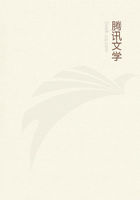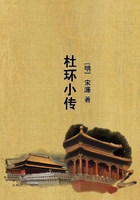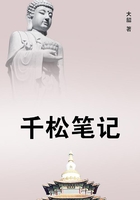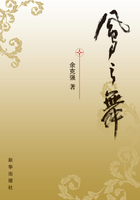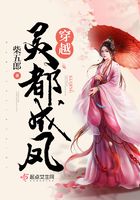In reading what Homer and Hesiod report about these matters, we must remember that all the forces and phenomena are conceived of by them as PERSONS. In this regard the archaic and savage view of all things as personal and human is preserved. "I maintain," says Grote, "moreover, fully the character of these great divine agents as persons, which is the light in which they presented themselves to the Homeric or Hesiodic audience. Uranus, Nyx, Hypnos and Oneiros (heaven, night, sleep and dream) are persons just as much as Zeus or Apollo. To resolve them into mere allegories is unsafe and unprofitable. We then depart from the point of view of the original hearers without acquiring any consistent or philosophical point of view of our own." This holds good though portions of the Hesiodic genealogies are distinctly poetic allegories cast in the mould or the ancient personal theory of things.
Iliad, xv. 187.
The custom by which sons drew lots for equal shares of their dead father's property is described in Odyssey, xiv. 199-212. Here Odysseus, giving a false account of himself, says that he was a Cretan, a bastard, and that his half-brothers, born in wedlock, drew lots for their father's inheritance, and did not admit him to the drawing, but gave him a small portion apart.
See Elton, Origins of English History, pp. 185-207.
We now turn from Homer's incidental allusions to the ample and systematic narrative of Hesiod. As Mr. Grote says, "Men habitually took their information respecting their theogonic antiquities from the Hesiodic poems." Hesiod was accepted as an authority both by the pious Pausanias in the second century of our era--who protested against any attempt to alter stories about the gods--and by moral reformers like Plato and Xenophanes, who were revolted by the ancient legends, and, indeed, denied their truth. Yet, though Hesiod represents Greek orthodoxy, we have observed that Homer (whose epics are probably still more ancient) steadily ignores the more barbarous portions of Hesiod's narrative. Thus the question arises: Are the stories of Hesiod's invention, and later than Homer, or does Homer's genius half-unconsciously purify materials like those which Hesiod presents in the crudest form? Mr. Grote says: "How far these stories are the invention of Hesiod himself it is impossible to determine. They bring us down to a cast of fancy more coarse and indelicate than the Homeric, and more nearly resemble some of the holy chapters () of the more recent mysteries, such, for example, as the tale of Dionysus Zagreus. There is evidence in the Theogony itself that the author was acquainted with local legends current both at Krete and at Delphi, for he mentions both the mountain-cave in Krete wherein the newly-born Zeus was hidden, and the stone near the Delphian temple--the identical stone which Kronos had swallowed--placed by Zeus himself as a sign and marvel to mortal men. Both these monuments, which the poet expressly refers to, and had probably seen, imply a whole train of accessory and explanatory local legends, current probably among the priests of Krete and Delphi." Timaeeus, 41; Republic, 377.
All these circumstances appear to be good evidence of the great antiquity of the legends recorded by Hesiod. In the first place, arguing merely a priori, it is extremely improbable that in the brief interval between the date of the comparatively pure and noble mythology of the Iliad and the much ruder Theogony of Hesiod men INVENTED stories like the mutilation of Uranus, and the swallowing of his offspring by Cronus. The former legend is almost exactly parallel, as has already been shown, to the myth of Papa and Rangi in New Zealand. The later has its parallels among the savage Bushmen and Australians. It is highly improbable that men in an age so civilised as that of Homer invented myths as hideous as those of the lowest savages. But if we take these myths to be, not new inventions, but the sacred stories of local priesthoods, their antiquity is probably incalculable. The sacred stories, as we know from Pausanias, Herodotus and from all the writers who touch on the subject of the mysteries, were myths communicated by the priests to the initiated. Plato speaks of such myths in the Republic, 378:
"If there is an absolute necessity for their mention, a very few might hear them in a mystery, and then let them sacrifice, not a common pig, but some huge and unprocurable victim; this would have the effect of very greatly diminishing the number of the hearers".
This is an amusing example of a plan for veiling the horrors of myth. The pig was the animal usually offered to Demeter, the goddess of the Eleusinian mysteries. Plato proposes to substitute some "unprocurable" beast, perhaps a giraffe or an elephant.
To Hesiod, then, we must turn for what is the earliest complete literary form of the Greek cosmogonic myth. Hesiod begins, like the New Zealanders, with "the august race of gods, by earth and wide heaven begotten". So the New Zealanders, as we have seen, say, "The heaven which is above us, and the earth which is beneath us, are the progenitors of men and the origin of all things".

